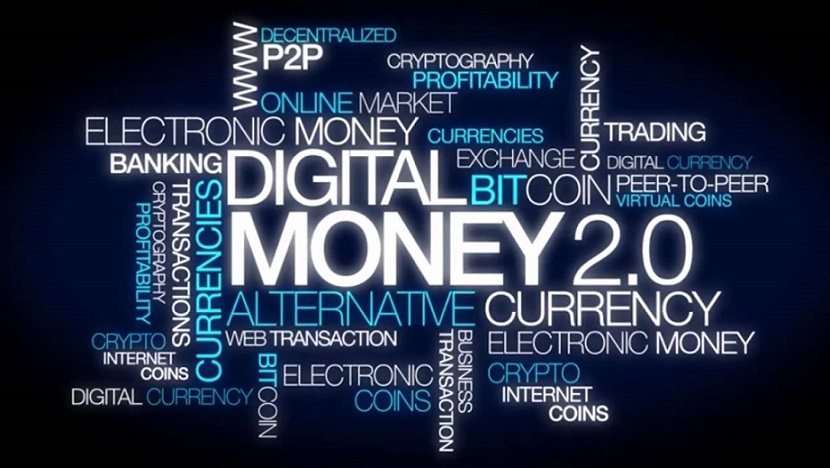
an article written by Andy Mukherjee, a Bloomberg Opinion columnist.
Is China Now Preparing Its Own Bitcoin? Banish the thought.
It’s much bigger than that. Yes, just like any other cryptocurrency – or even cigarettes in prisoner-of-war camps – the upcoming digital yuan will be spent as a bill. But the similarity ends there. The crypto yuan, which may be offered as early as 2020, is fully supported by the central bank of the world’s second largest economy, as the Chinese state is able to raise taxes permanently. Other national authorities will certainly join this strong idea.
Little is known about the digital yuan, except that it has been in operation for five years and Beijing is almost ready to use. The consensus is that the token will be a private blockchain, a peer-to-peer network for the exchange of information and the validation of transactions, in which the People’s Bank of China has control over who can participate. First, the currency is provided through the banking system and replaces part of the physical cash. Given the ubiquitous presence of Chinese QR code-based digital wallets like Alipay and WeChat Pay, this won’t be difficult.
It may start small, but the digital yuan can disrupt both traditional banking and the Bretton Woods variable exchange rate system that the world has lived with since 1973. No wonder that “Blockchain and the digital yuan currency are a strategic priority for China – almost at the Internet level,” says fintech analyst Gautam Chhugani of Sanford C. Bernstein & Co ..
Since the advent of the 17th century goldsmith’s banker in London, the main topic of banking has been the ledger, a collection of irrefutable documents to build trust in situations where it does not exist. If Peter in Vancouver is ready to send money to Paul in Singapore, they need to use a chain of interconnected intermediaries, as there is no ledger in the world that lists both. Blockchain’s distributed ledgers make trust irrelevant. Paul creates a secret code and shares his encrypted version with Peter, who uses it to create a digital contract to pay Paul. A cumbersome and expensive network of correspondent banks becomes superfluous, especially when it comes to moving $ 124 trillion in transactions across borders each year. Imagine the productivity boost. Imagine the threat to lenders.
China is not the only one experimenting. The fast, low-cost processing of cross-border payments is an application of JPMorgan Chase & Co.s Quorum, an Ethereum-based platform on which the Monetary Authority of Singapore runs the Ubin project, an investigation into the development of digital money from the central bank. These are early days, but when blockchain technology can handle a large number of transactions at the same time, digital currencies can replace not only physical cash, but also bank reserves.
Then the game changes. Central bank reserves are maintained by lenders who make deposits. A digital yuan – or Singapore dollar or Indian rupee – could bypass this system and allow any currency holder to make a deposit with the central bank, potentially making the state a monopoly money supplier to retail customers. As Agustin Carstens, General Manager of the Bank for International Settlements, said recently: “If the central bank becomes the depository of everyone, it may also become the lender of everyone.”
But why should central banks want to downgrade their own banking systems? One answer regarding Europe and Japan is that negative interest rates do so anyway. Lenders are no longer profitable because, although they ask the central bank to deposit money, they cannot easily pass on these negative interest rates to their own depositors. If the global economy gets stuck in a long-term stagnation, official digital currencies will at least be an efficient way of easing monetary policy without involving banks.
The other, more specific reason could be that technical progress is making the status quo untenable. It’s no coincidence that China accelerated its national cryptocurrency after Facebook Inc. announced the Libra project, which was touted as an alternative dollar. Perhaps that was imaginative, and the scales hit a wall of regulatory concerns. However, when offered at local 7-Eleven like Spotify gift cards, cross-border acceptable tokens are needed that are stable in value compared to local currency baskets and can be used for global trade and investment. Someone in Silicon Valley will eventually succeed, blowing away the fig leaf of monetary sovereignty in emerging markets.
The changes will not end with banking and money transactions. Token transactions are pseudonymous: if the central bank wants to see who spends where, it can. The anonymity disappears when cash is available. While this will make life difficult for money launderers and terrorists, it could also become an instrument to punish political activism. Meanwhile, the currency is losing some of its importance as a foreign policy weapon. The Pariah states will want a crypto that they can access by bypassing banks that are afraid of disregarding Western sanctions. According to Kenneth Rogoff, an economist at Harvard University, the technology is “on the verge of disrupting the ability of the United States to use confidence in its currency to pursue its broader national interests.”
A roller coaster decade – not just for banks and money, but also for privacy and politics – could just be starting.
About the author
Andy Mukherjee is a Bloomberg Opinion columnist dealing with industrial companies and financial services. Previously, he was a columnist at Reuters Breakingviews. He has also worked for the Straits Times, ET NOW and Bloomberg News.
Banking 4.0 – „how was the experience for you”
„To be honest I think that Sinaia, your conference, is much better then Davos.”
Many more interesting quotes in the video below: